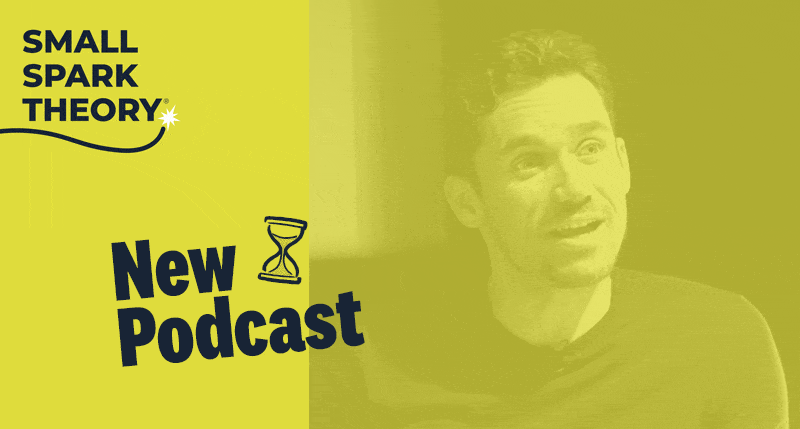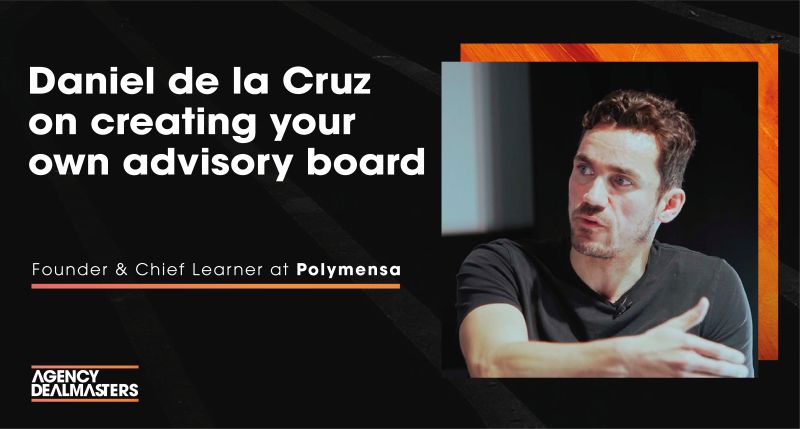
Are you the hammer looking for nails? Consulting tips for agencies
November 10, 2020
Reflections Nov 2020 – Week 3: What happens after success? When to hire a studio manager? Nocebo effect and more…
November 23, 2020Agency musings
Consulting tips for agencies
As a consultant it can be hard sometimes to bite your tongue and not suggest a solution too early. But this can lead to seriously damaging your credibility. Here’s why? Read the full post
How good is your customer service?
Prior to the pandemic, Airbnb regularly innovated their customer service. The ideation process was to map out what a 1,2,3,...11 star experience of an Airbnb booking could look like. At the extreme end of 11 stars there were near unrealistic ideas. But there’s some sweet spot between “They showed up and they opened the door” and “I went to space.” Doing this exercise is a great way to come up with ideas, identify that sweet spot and create a simple roadmap to developing the best customer experience your agency can provide. What does your 11 star customer experience look like at your agency? Give it a go. More insights from Airbnb’s founder Brian Chesky here
Inside Polymensa
Team Mintaka
Book club review
Uncharted - How To Map The Future
Last week we discussed a book written by Margaret Heffernan. It mainly provides arguments and tips to navigate an unpredictable future. Apt to the current situation.
The automation paradox
Margaret claims in the book that the more we automate the more we lose the ability to do it ourself. The problem therefore is: If an automated system has an error, it will multiply that error until it’s fixed or shut down. This is where human operators come in. This has been an age old dilemma in computing “the computer is only as smart as the human operating/creating it” - can machine learning (robotic process automation or hyper automation) fix that? Or will the idea that nothing can be certain prevail and always cause problems with fully automated systems.
Next we’ll be exploring former Propellernet Managing Director, Nikki Gatenby’s book:
Super Engaged
Check out these Slack discussions from last week
For Agency Founders/MDs/CEOs
Ideas on how to best get feedback from team members into how you’re performing as CEO
Commission structures for sales team and account managers vs. company wide bonuses
For People Directors of agencies
Advice on how to run a good salary review process
Ideas for internal training for middle-managers
Coming up next week Friday 11am - 12pm
Join our monthly peer group call for People Directors of agencies with minimum 20 staff. Find out more information here
The beautiful mind
Curse Of Knowledge - cognitive bias
Last week I had the pleasure of philosophising with my dear friend and epic coach Daryll Scott. We’re both no friends of jargon used for the sake of sounding smart. But there must be a point where simplifying something ends up being too simplistic. It is near impossible for a physicist to explain Poinsot's ellipsoid without the use of jargon. Ever work with a person who explained something to you using words you just couldn’t understand. Yet the reality is probably that this person is not attempting to make you feel inferior and probably thinks you have the same pre-existing knowledge - this is known as the Curse Of Knowledge bias.
Everyone likes surprises - as long as it's a surprise they like.
Our conversation continues with me claiming I like chaos. The loss of control. The unknown excites me! Until Daryll rightly reframed my belief. “Yeah you like chaos - the kind of chaos you like. But you won’t like the chaos you don’t like.” It emphasises how much we constantly try to control the things around us. To the point we can sabotage our brains so much we make ourself believe we are stepping out of our comfort zone - but actually are well within it.
Quote of the week
"Truth is ever to be found in simplicity, and not in the multiplicity and confusion of things.”
Sir Isaac Newton
Company spotlight
Elevate
A company that develops a great brain training game for mobile phones.
Random information
(entertaining at the very least)
-
Subvocalization is the internal speech typically made when reading. It provides the sound of the word as it is read. This is a natural process when reading, and it helps the mind to access meanings to comprehend and remember what is read, potentially reducing cognitive load.
-
Teide is a volcano in Teneriffe and of the 16 Decade Volcanoes - apparently these are worthy of particular study in light of their history of large, destructive eruptions and proximity to populated areas.
-
There is one main artery and one main vein in our eye.
Thank you for reading.
If you enjoyed this feel free to sign up to our mailing list to get notified in your inbox when our next musings are out.
Also find us on LinkedIn and Twitter.
"Be an infinite learner." - Polymensa
Have a great week!
Cheers, Daniel :)





